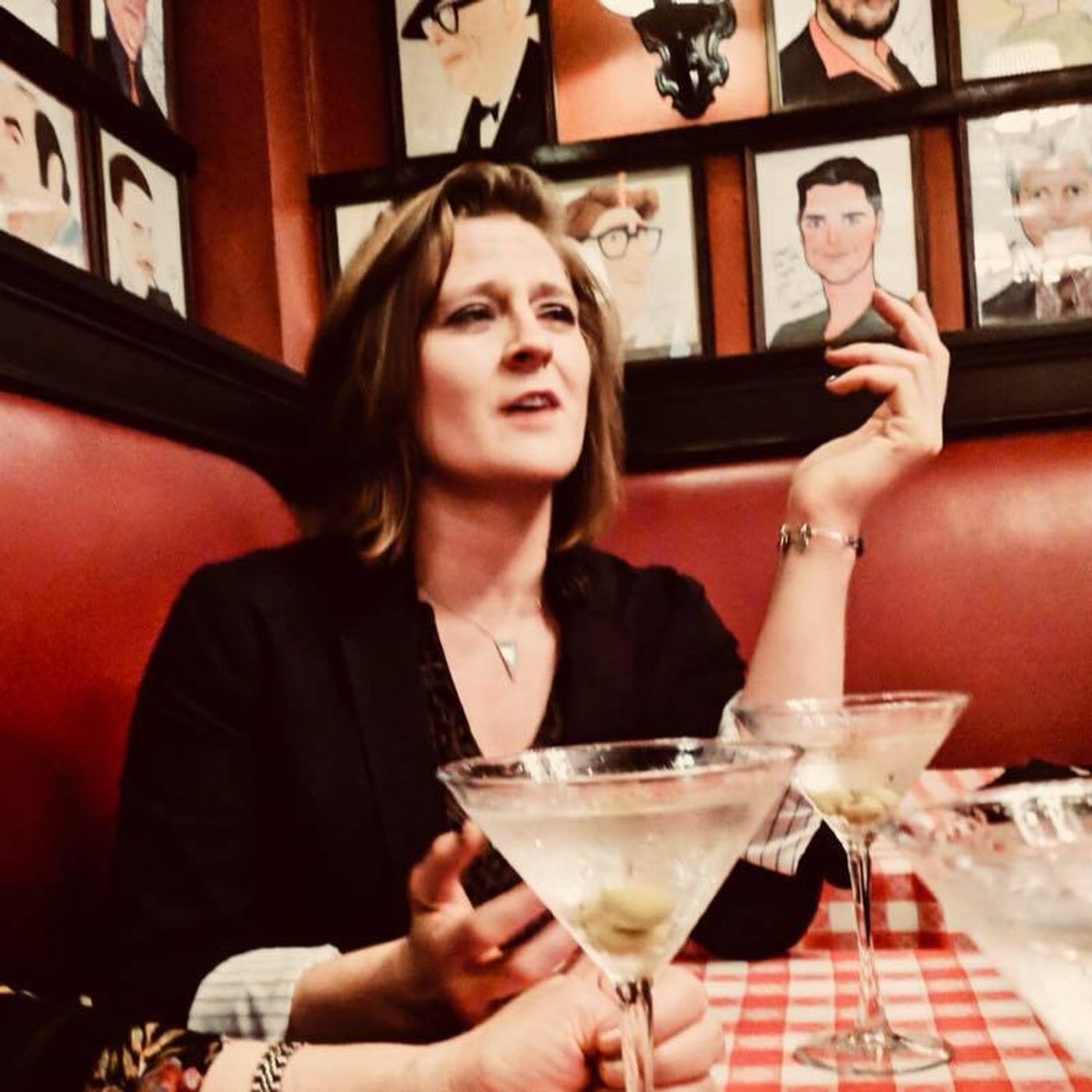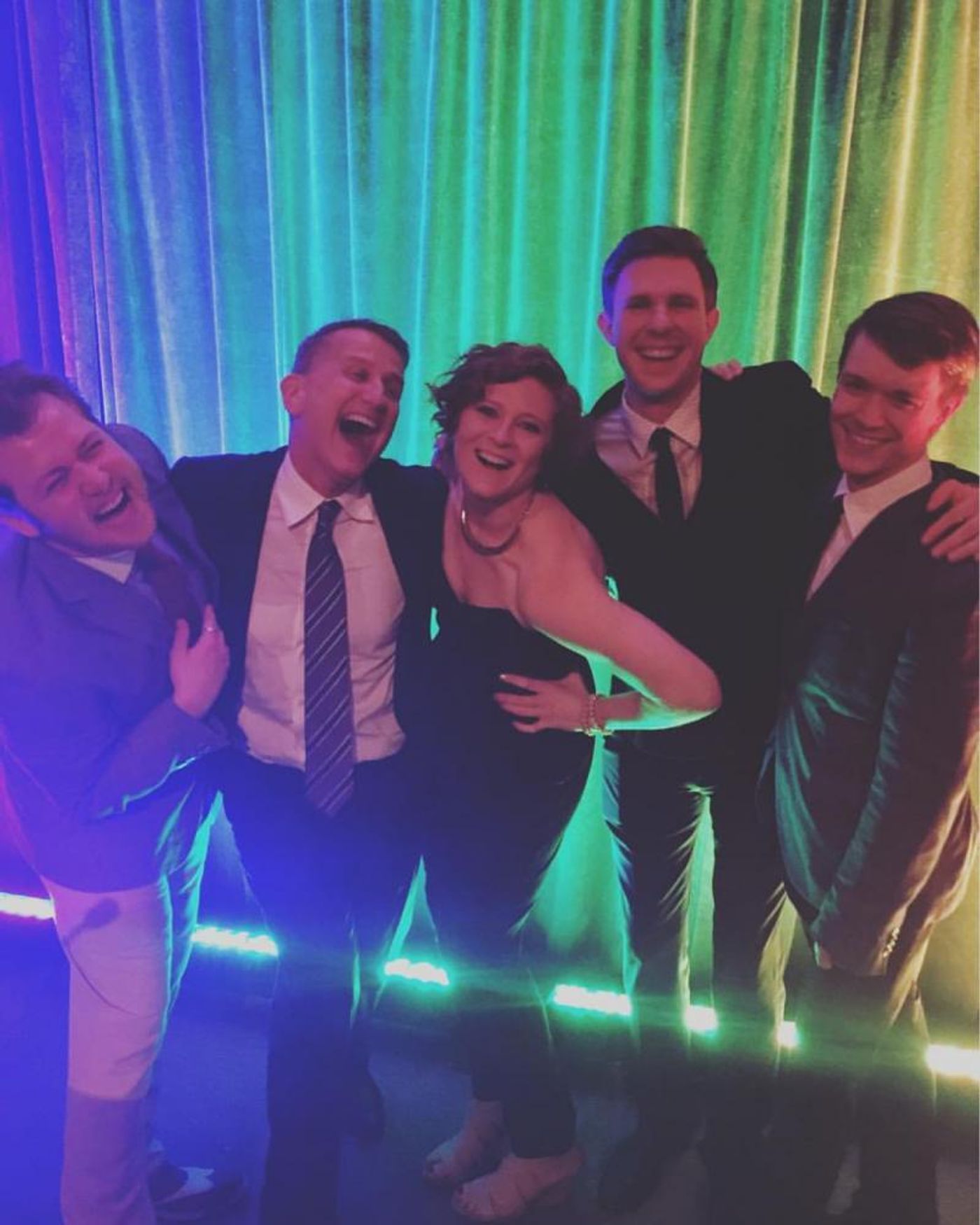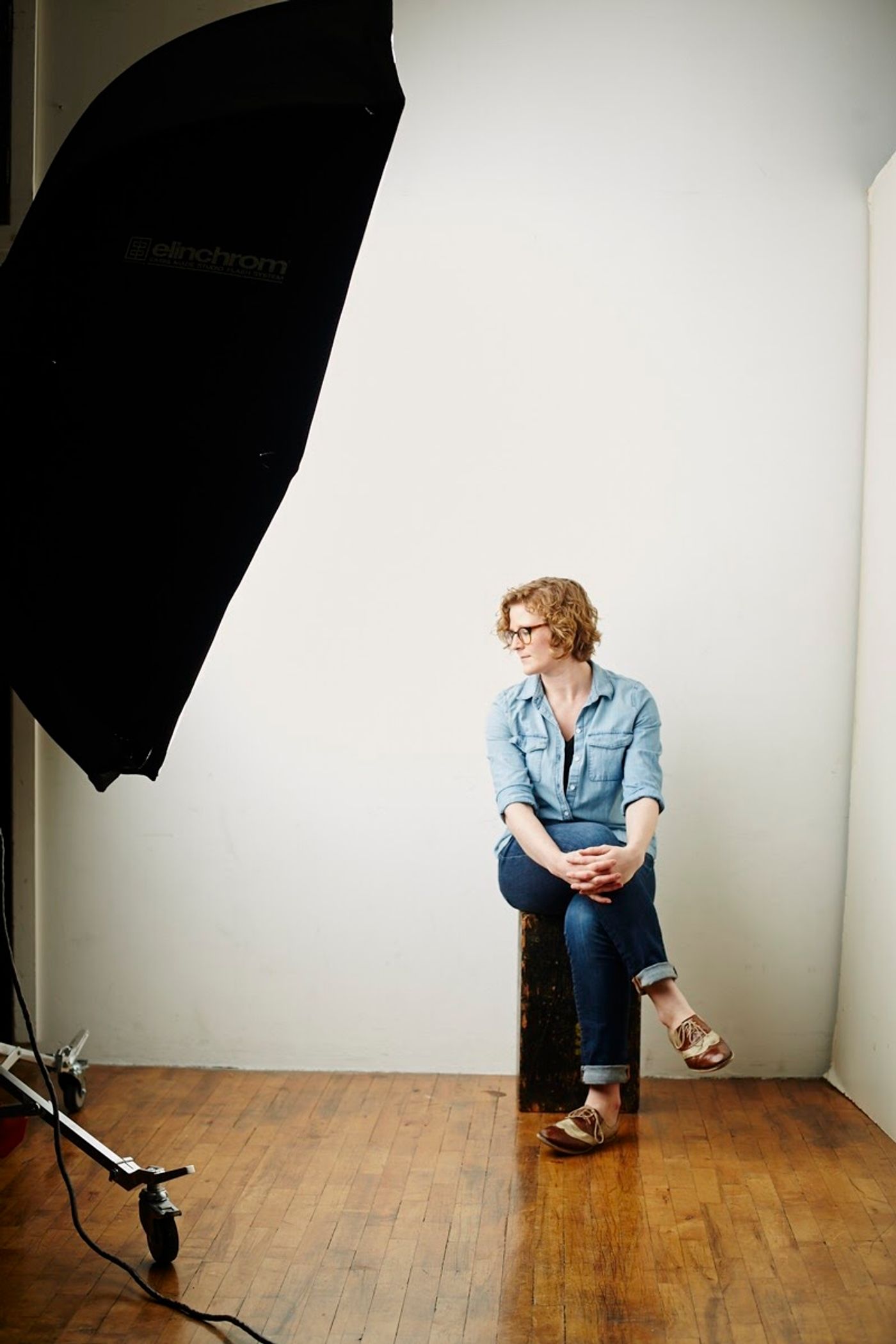She Believed She Could: Princesses, Producing, and PUFFS with Sally Cade Holmes

"Finding the art in forward motion."
That's how producer Sally Cade Holmes describes her work, and it's an apt - and elegant - description of the nebulous, multifaceted world of theatre producing. From festival credits to the off-Broadway favorite Puffs, or, Seven Increasingly Eventful Years at a Certain School of Magic and Magic to the Broadway hit musical Anastasia, Holmes has often found herself working on productions that tap into audience's hearts and minds.
The way Holmes tells the story, producing wasn't exactly something she planned for, but rather something she slowly realized was right for her.
"I moved [to New York City], thought I wanted to be an actor, and realized it wasn't for me, it was too out of control. Then four friends and I started a theatre company... there wasn't really a role for me in the play, the designers were doing all the design, so I was just like 'Well, I'll just be the glue that holds everything together and makes everything move forward!' And on opening night, I was looking around, and I was like, I can't point to a single thing that has my stamp on it! But my friend [said], 'Are you kidding me? You were the reason this could come to fruition!' And in that moment, I realized, oh, that's what I'm good at!" she recalls.
From there, Holmes began to focus on getting the formal training to support her producing ambitions. She applied to graduate programs and was accepted into Boston University's arts administration program. As she worked to gain on-the-ground producing experience as well, she worked at the Williamstown Theatre Festival in Massachusetts. There, she met producer Tom Kirdahy and made the connection that would eventually lead to her joining his production house, Tom Kirdahy Productions, where she now works as an associate producer.
As an associate producer, Holmes's daily life includes everything from running the TKP office to representing the company in-person at meetings, rehearsals, and other industry events. But, like so many others in the theatre industry, her day doesn't often end with a normal 10-to-6 workday: in the evenings, she may have meetings with collaborators, see shows, or head down to New World Stages to work the off-Broadway production of Puffs, where she also runs the merchandise operation. When producers joke about doing a little bit of everything, they're definitely not exaggerating.

Depending on the type of show and the stage at which she comes onto the project, Holmes describes a wide variety of producer involvement, ranging from significant creative collaboration to a more purely business approach.
"[Sometimes], we're collaborating on what the show is, in the throes of writing it. It's some dramaturgical work, really digging into what the visual world would look like. On a bigger production, like Anastasia, all of that is already set in motion, so I have to set the fundraising gears in motion. It all depends on the scale of the project, where it is, and who the players are, and where I fall in the scheme of things."
In many ways, the role of the producer is to help shape the overall theatre landscape - not just in creative input on individual shows, but by determining what voices will be heard and when. It's a both a serious responsibility and a major opportunity, something which Holmes understands wholeheartedly.

"I am an entertainer, unapologetically an entertainer, but with a set of values that demands a certain type of story," she explains. "[I think about] if the story resonates with me, if it passes the Bechdel test, if the ethos is something that I want to put into the world... everything I do needs to be entertaining, but at a foundational level, [it should] have the potential to change someone... there's just that something under the surface that really sticks with you." Theatre - and, indeed, all art - has this remarkable and unique ability to move audiences emotionally but also intellectually. Holmes emphasizes that "good theatre" doesn't have to be edgy or purely cerebral - although there's room for that too - but that there's something to be said for pieces that work more subtly, entertaining while also giving us something to connect with and think about.
When we turn to a discussion of the place of theatre and art in an increasingly complicated world, Holmes doesn't hesitate to offer up a thoughtful analysis of the changing landscape of theatre and what the future could look like.
"We are in this moment that is inevitably affecting the work we do... we have to have people in positions of power to get those shows into the spotlights. My hope - and I think I see this happening - is that the gatekeepers are becoming a more diverse group of human beings." It's a hopeful outlook, one that eagerly embraces the potential for more and more different stories to be told while embracing the contributions of past and present as well.
"All advice is autobiographical!" she laughs when I ask her how she would advise up-and-comers. "But, look at the page in the Playbill that lists all the staff. People have to fill all of those jobs - it takes a huge army to produce a show! If you want to affect art on a broader scale, maybe being behind the scenes is actually the way to do it. There's so many avenues you can take - there is no straight path."
When it comes to making theatre that matters, everyone is going to have a different perspective. With producers like Holmes taking the reins, though, it seems fairly certain that the future of the industry is in safe - and creative - hands.
Videos


